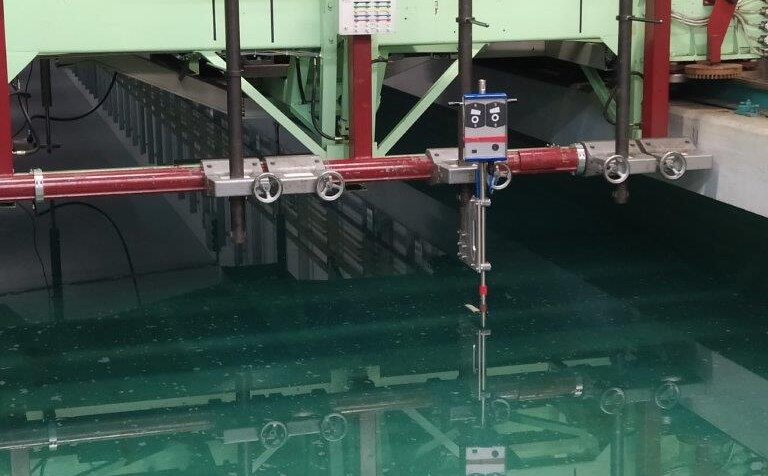11-22-2023
NivuFlow Stick awarded independent verification

Today, NIVUS is delighted to announce that the NivuFlow Stick has received an independent calibration certificate from METAS, the Federal Institute of Metrology in Switzerland.
“This is a significant achievement,” explains Christian Koch, Head of Product Management at NIVUS. “The calibration certificate resulted from a series of stringent tests, and follows the award of a similar verification certificate from NIWA, the National Institute of Water and Atmospheric Research in New Zealand.
“We already have regulatory customers as well as water companies, consultancies, researchers and academia, but third-party verification will provide users with the assurance that they can now measure flow quickly, easily and accurately; confident in the knowledge that they are using an accurate, independently tested device.”
The NivuFlow Stick is a simple to use, portable instrument for fast, accurate flow velocity measurements utilising the ultrasonic cross-correlation measurement principle. In contrast with traditional methods, this technology is able to measure water velocities at different water depths simultaneously and with high resolution. As a result, even relatively unskilled operators are able to derive an accurate flow velocity curve quickly and easily.
Simple, intuitive operating procedures are driven via smartphone or tablet, and data are both displayed in real-time and shared on-site via WLAN. Importantly, any deviations in measurement quality by the NivuFlow Stick are also displayed, and this quality indication is stored with the data.
The system contains no wearing parts and is maintenance-free, and with lightweight components, handling in the water is effortless and safe. The NivuFlow Stick is therefore ideal for discharge measurements in streams and small rivers, as well as for checking the accuracy of fixed flow monitoring equipment.
Summarising, Christian Koch says: “The speed and simplicity of the NivuFlow Stick offer major advantages to customers looking to migrate their instruments from more traditional methods such as ADCP and acoustic doppler. The new verification certificates will therefore provide users with the assurance that they can exploit the benefits, whilst also achieving the required levels of accuracy.”